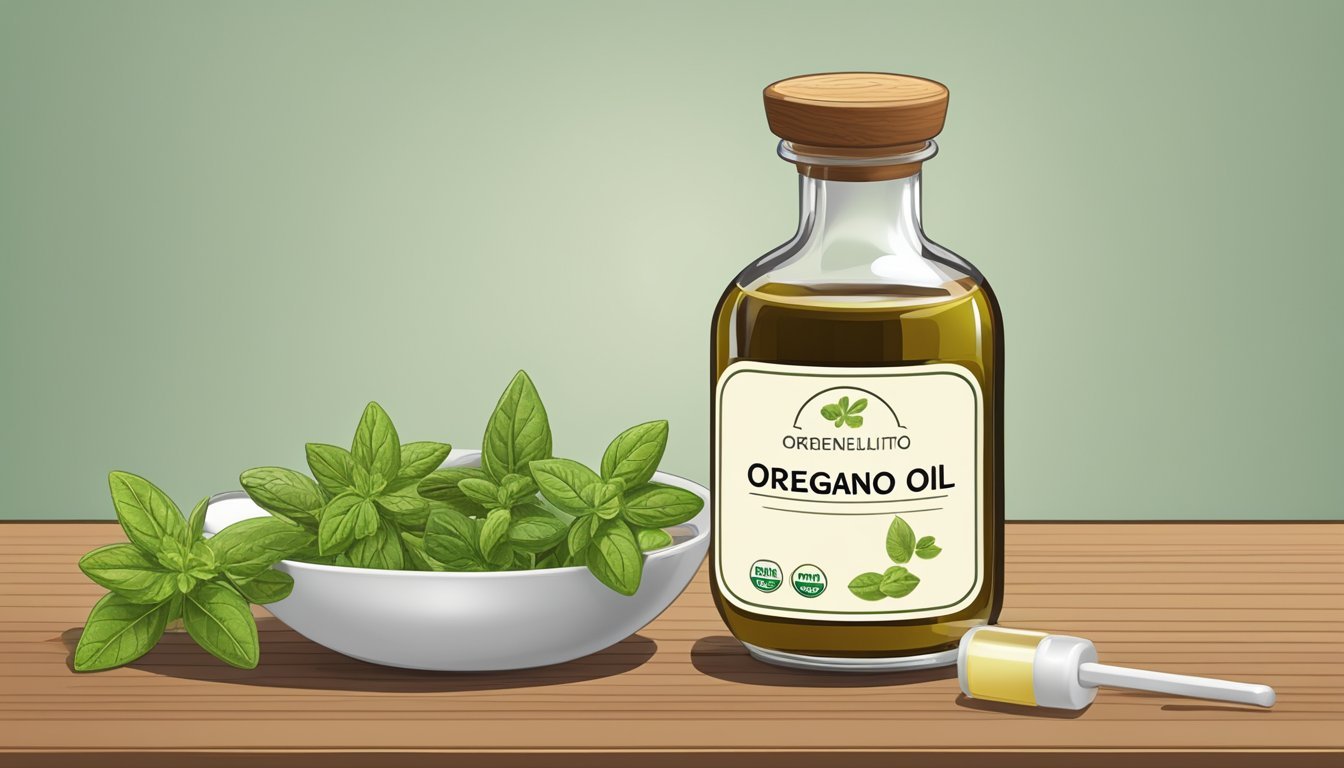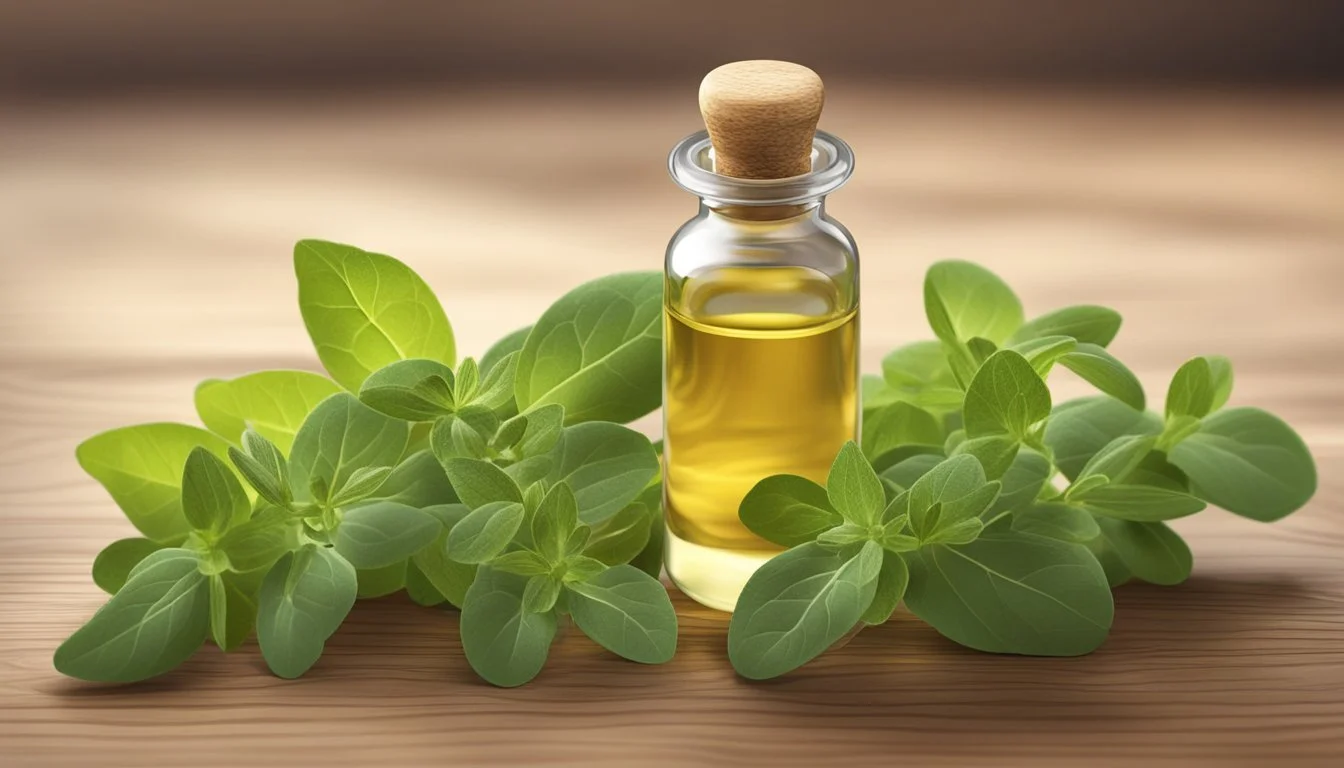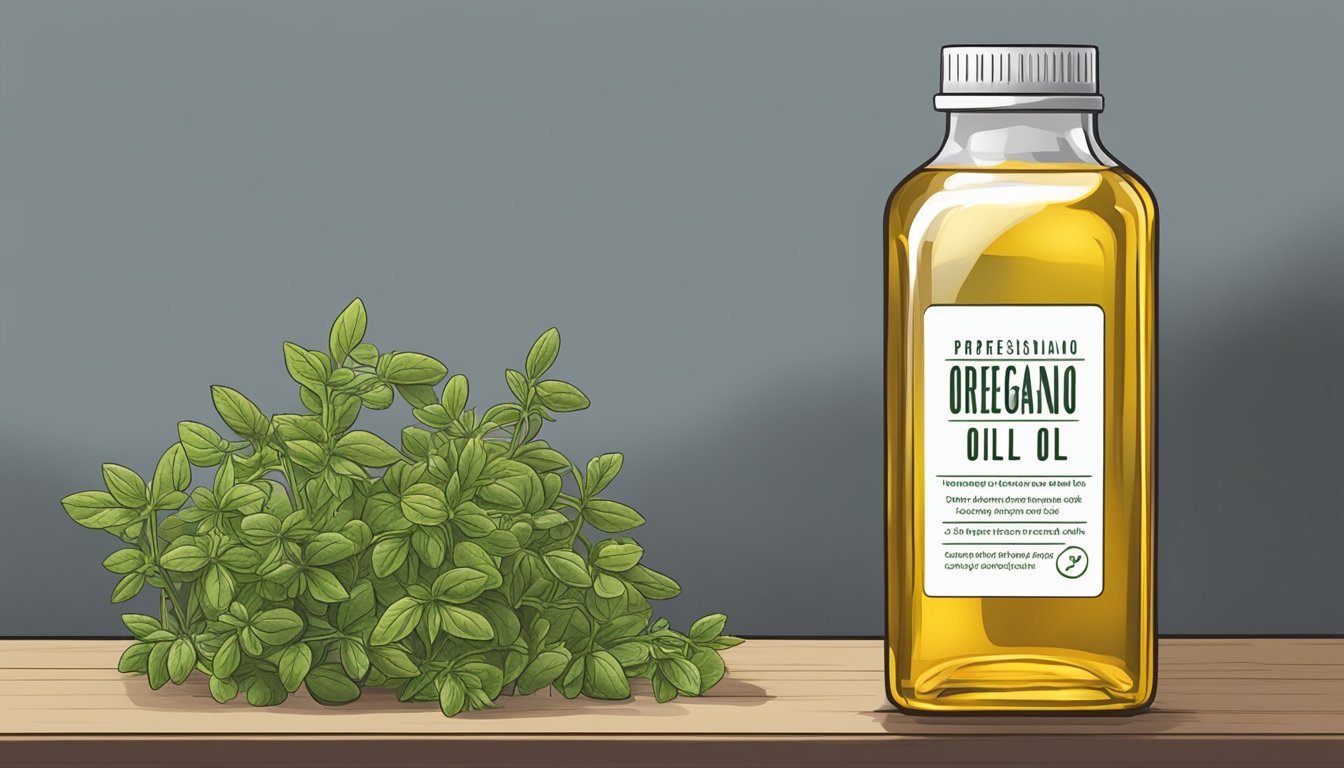How Long Does Oregano Oil Last?
Shelf Life and Storage Tips
Oregano oil, an essential oil packed with health benefits, is derived from the leaves and flowers of the oregano plant. This oil has been used traditionally as a natural remedy due to its potent anti-inflammatory, antibacterial, and antioxidant properties. It plays an integral role in homeopathic treatments and is also incorporated into daily health routines to boost immunity and improve overall well-being.
The longevity of oregano oil greatly depends on how it is stored. When kept in a cool, dark place, such as a refrigerator, and sealed in an airtight container, homemade oregano oil can remain usable for up to six months. This careful storage is crucial as it helps in preserving the oil's potency and extends its shelf life by preventing the degradation of its active compounds.
Commercially prepared oregano oil often comes with an expiration date, which can be a reliable indicator of its shelf life, typically ranging anywhere from one to five years when unopened. Once opened, maintaining optimal storage conditions is key to preserving the oil's quality. Both homemade and commercial oregano oils, when stored properly, continue to offer a range of health benefits far beyond their preparation date.
Understanding Oregano Oil
In the realm of essential oils, oregano oil stands out for its distinctive properties and variety of uses in both the culinary and wellness spaces. This section explores the fundamentals of oregano as an herb, the extraction processes of oregano essential oil, and the primary active components that constitute its potent character.
Oregano Essentials
Oregano, scientifically known as Origanum vulgare, is a perennial herb that is part of the mint family. It has been used for centuries for both its culinary flavors and medicinal properties. The herb thrives in a Mediterranean climate and is recognized by its aromatic, warm, and slightly bitter taste, which has made it a staple in a variety of cuisines.
Extraction Methods
To obtain oregano oil, one may employ several extraction techniques, with steam distillation being the most prevalent and efficient method. During this process, steam is used to release the oil from the oregano plant. Another method is the infusion of dried oregano in a carrier oil, such as olive oil, which is a simpler, albeit less concentrated, method that can be done at home.
Main Components
The efficacy of oregano oil is mainly due to two compounds: carvacrol and thymol. Carvacrol is the most abundant, responsible for oregano oil's robust and spicy flavor, as well as many of its therapeutic effects. Thymol complements carvacrol and also possesses antiseptic properties. These two phenols are critical to the oil's natural antimicrobial and antioxidant abilities.
Health Benefits and Uses
Oregano oil is recognized for its powerful therapeutic properties and is used to manage a variety of ailments due to its anti-inflammatory, antimicrobial, and antioxidant effects.
Therapeutic Properties
Anti-inflammatory Effects: Oregano oil contains compounds like carvacrol and thymol, helping to reduce inflammation.
Antimicrobial Activity: Its high levels of carvacrol make it effective against certain bacteria, contributing to its use in fighting infections.
Antioxidant Capacity: The oil offers considerable antioxidant properties, which help protect the body against damage from free radicals.
Common Ailments
Respiratory Infections: Oregano oil is commonly used to alleviate symptoms associated with colds and flu.
Digestive Issues: Due to its antifungal, antiparasitic, and antibacterial properties, it's used to improve gut health and digestive problems.
Oral Health: Traditionally, oregano oil has been employed to treat toothaches, indicating its application in oral hygiene.
Optimal Storage Methods
Proper storage is critical for maintaining the potency and shelf life of oregano, whether it's the fresh herb or its oil derivative. Here are the best practices to ensure longevity and quality.
Storing Fresh Oregano
To store fresh oregano, one should first wash and pat the herb dry to remove any moisture. It's then advisable to wrap the oregano loosely in a paper towel to absorb any additional moisture and place it inside a glass jar or an airtight container. The container should then be stored in the refrigerator. This method helps to extend the herb's freshness and preserve its flavor.
Preserving Oregano Oil
For oregano oil, it is essential to store it in a cool, dark place to prevent degradation from light and heat. Dark glass bottles are preferred storage containers as they offer protection from light. The oil should be sealed tightly to minimize oxidation and should be kept away from moisture to maintain its therapeutic benefits. When stored correctly, the shelf life of oregano oil can be significantly increased, lasting for up to two years.
By following these specific storage methods, one can maximize the effective use of oregano in both its fresh form and as an essential oil.
Shelf Life Determinants
The shelf life of oregano oil is influenced by several factors that can either preserve or degrade its quality. Understanding these determinants is essential for maintaining the oil's potency and ensuring its safe use.
Factors Affecting Potency
Storage Conditions: Oregano oil should be stored in a cool, dark place, such as a pantry or refrigerator, to maximize its shelf life. It ideally lasts up to six months to two years, dependent on the storage environment.
Container Material: An airtight, opaque container is critical to prevent oxidation and maintain the essential oil's integrity.
Temperature: Excessive heat can speed up the degradation process, reducing the oil's efficacy.
Indicators of Degradation
Color: A change in color might indicate that the oregano oil is losing its potency or has been exposed to factors that precipitate degradation.
Smell: Oregano oil has a distinct, strong aroma. A weakening of its signature smell can be a sign of decreased quality.
Oxidation: Exposure to air can lead to oxidation, a chemical reaction that may diminish the essential oil's effectiveness and result in a rancid or off smell.
Safety and Side Effects
When considering the use of oregano oil, safety and side effects are two critical components. Users must be aware of the proper dosage and the potential for adverse reactions to avoid health complications.
Proper Dosage
The correct dosage of oregano oil is essential for safety. Because it is a highly concentrated substance, it should be diluted before use. Overconsumption may lead to problems such as nausea and gastrointestinal distress. However, there is no universally recommended dosage, as it can vary based on several factors including the concentration of the oil, the form it's in, and the individual's health status. Consulting with a healthcare provider for personal dosage recommendations is advisable.
Potential Reactions
Oregano oil can cause a range of adverse reactions. Some individuals may experience allergic reactions to oregano oil, which can manifest as rashes, swelling, or difficulty breathing. It's vital to perform a patch test before using oregano oil extensively.
Side effects can include:
Nausea
Diarrhea
Fatigue
Allergic reactions are less common but may occur, particularly in those allergic to plants in the Lamiaceae family, which includes oregano.
If any of these side effects or allergic symptoms occur, discontinuing use and seeking medical advice are important steps. Additionally, those with pre-existing medical conditions should consult with a healthcare provider before using oregano oil to avoid potential interactions with other medications or health issues.
Frequently Asked Questions
This section aims to provide readers with specific tips for using and substituting oregano oil to ensure optimal effectiveness and longevity.
Usage Tips
When incorporating oregano oil into recipes or Mediterranean dishes, one should remember that its shelf life can extend up to two years if properly stored in a cool, dark place away from light, heat, or air. This might include a pantry or cupboard that avoids direct sunlight. Additionally, to maintain its potency, they must ensure the oil is sealed tightly after each use to prevent oxidation.
Optimal Storage Conditions:
Temperature: Cool
Light: Minimal to none
Container: Airtight
To maximize the oil's effectiveness, individuals may use it in culinary applications by diluting it with a carrier oil such as olive oil, which is common in Mediterranean cuisine, using an approximate 3:1 or 10:1 ratio of carrier oil to oregano oil depending on the recipe and desired potency.
Substitutes and Alternatives
In case someone runs out of oregano oil or it has reached its expiration, they might look for substitutes that harmonize with Mediterranean recipes, while considering the flavor profile and fragrance. For instance:
Dried Oregano: As a direct alternative, dried oregano can provide a similar earthy and robust flavor in recipes.
Thyme or Marjoram: These herbs share similar properties and can mimic the flavor in dishes that traditionally call for oregano oil.
It is crucial to consider the unique qualities each alternative will bring to a dish and adjust the amount used according to taste preferences and recipe requirements. They should bear in mind that while substitutes can provide comparable flavors, the health benefits or specific properties of oregano oil may not be fully replicated by alternatives.








